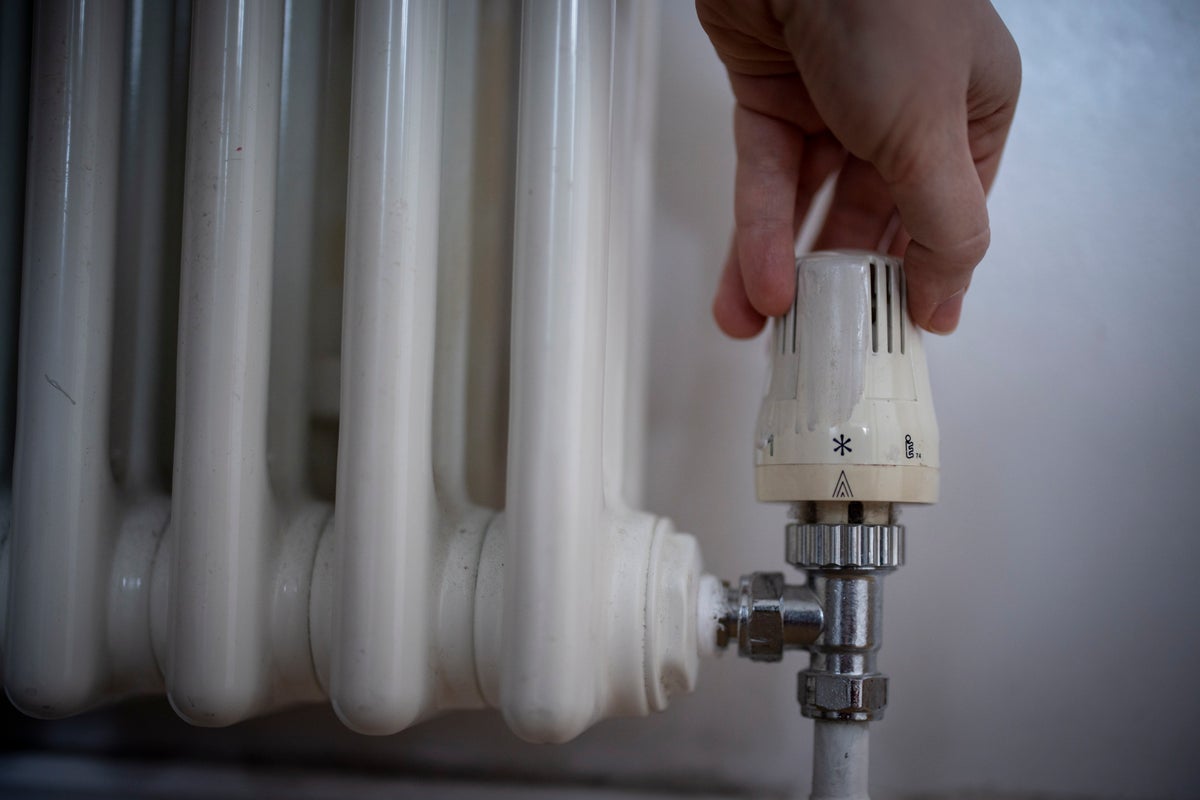
For free real time breaking news alerts sent straight to your inbox sign up to our breaking news emails
Sign up to our free breaking news emails
Around 367,000 households in Britain are without central heating as the UK faces an Arctic cold snap with temperatures as low as -10C.
An amber cold health alert is currently in place for the whole of the UK and has been extended until midday on Saturday.
Experts at the UK Health Security Agency warned the cold snap can bring an increased likelihood of heart attacks, strokes and chest infections and pose a particularly serious risk for older people.
According to data from the last Census run by the Office for National Statistics in 2021, 367,119 households are without any central heating at all.
The UK has faced sub-zero temperatures for days in a ‘prolonged’ cold snap
(Getty Images)
Some of the worst affected places include Manchester, which had the fourth highest number without central heating in England and Wales with 4,884 and almost 2.3 per cent of households. Salford’s 1,952 households is also above the national average at 1.7 per cent of homes.
The worst place affected by no central heating is Birmingham with nearly 10,000 households without central heating.
The Independent has listed the top ten lower tier local authorities without central heating according to Census 2021 data below.
Councillor Joanna Midgley, deputy leader of Manchester Council told BBC’s Local Democracy Reporting Service, said it was a “sad indictment of the current political and economic climate that in 2024 there are thousands of people in Manchester living in fuel poverty”.
Tameside Council leader Ged Cooney said it was a “damaged statistic” which meant more needed to be done. “We’re appalled, especially when you think of how cold it’s been”, he told the BBC.
New research by the End Energy Poverty coalition on Wednesday revealed that almost 5,000 excess winter deaths were caused by cold homes last winter.
A spokesman for Fuel Poverty Action told The Independent: “It’s a really dangerous situation. New research from the End Energy Poverty coalition shows that last winter we had 5,000 excess deaths from cold and damp homes. That was in a relatively mild winter. The risks that people face is death and lasting health impacts for those who do survive.
“It goes beyond heating, when people go without that due to fuel poverty, they could also not be eating properly, and then it’s about whether they’re able to wash themselves and their clothes. The government could be doing more.
“They could be intervening on the decision to instal pre-payment meters for people who are being cut off, for example.”
The National Energy Alliance, a national fuel poverty charity said that the figures could mean users without central heating were using alternative fuels.
A yellow weather warning is in place
(Getty Images)
They said: “We know hundreds of thousands of homes do not have central heating in England. That doesn’t mean they are without heat altogether – they could have oil heaters, plug in radiators or use solid fuel – but they are more likely to be much more expensive to heat economically.
“They are also more likely to be poorly insulated and therefore loose heat quicker. Conversely, just because people have central heating, it doesn’t mean that they can afford to use it.
“The cost of heating and powering an average home with gas and electivity has almost doubled since the energy crisis began just over two years ago. Regardless of how they heated their home in the past, many of the people our charity tries to help are only heating one room, going without heating at all, warm food and hot showers, it’s desperate.”
✕
Subscribe to Independent Premium to bookmark this article
Want to bookmark your favourite articles and stories to read or reference later? Start your Independent Premium subscription today.
SubscribeAlready subscribed? Log in
Popular videos
{{/link}}

